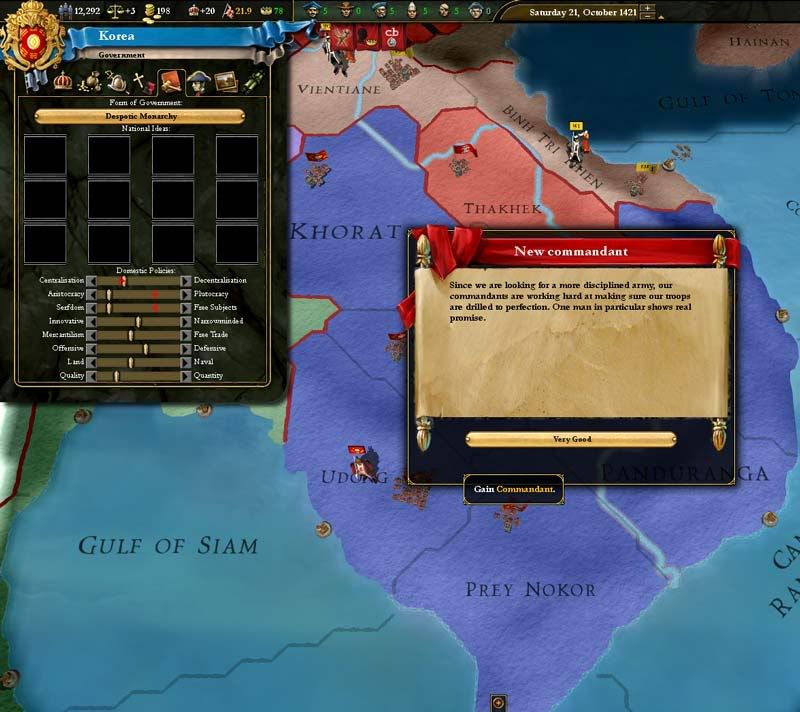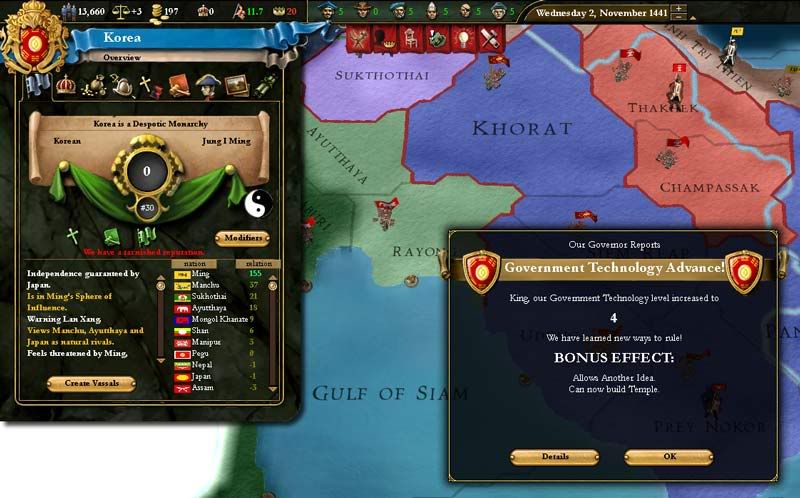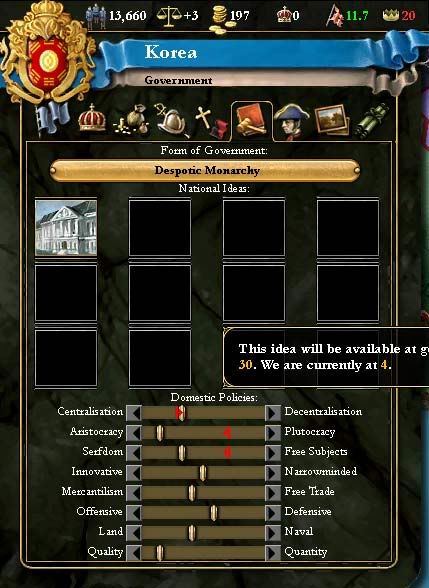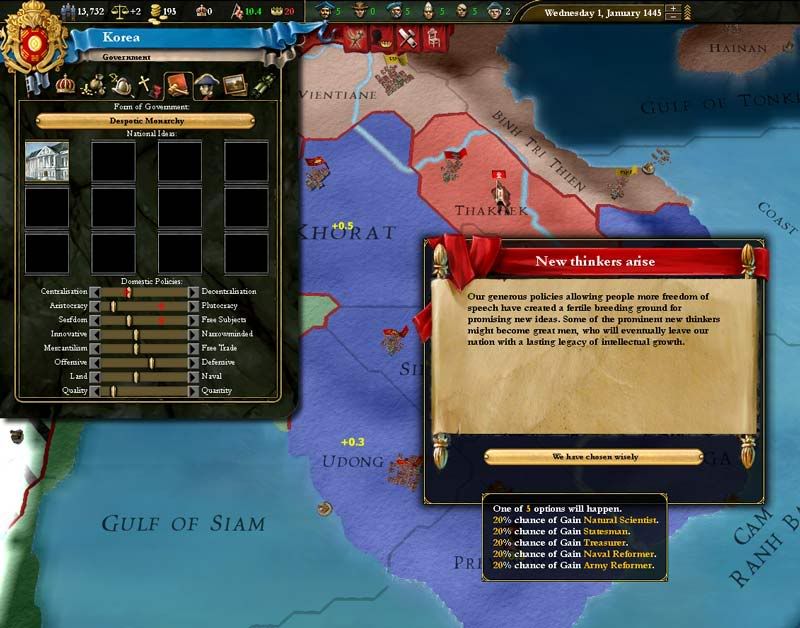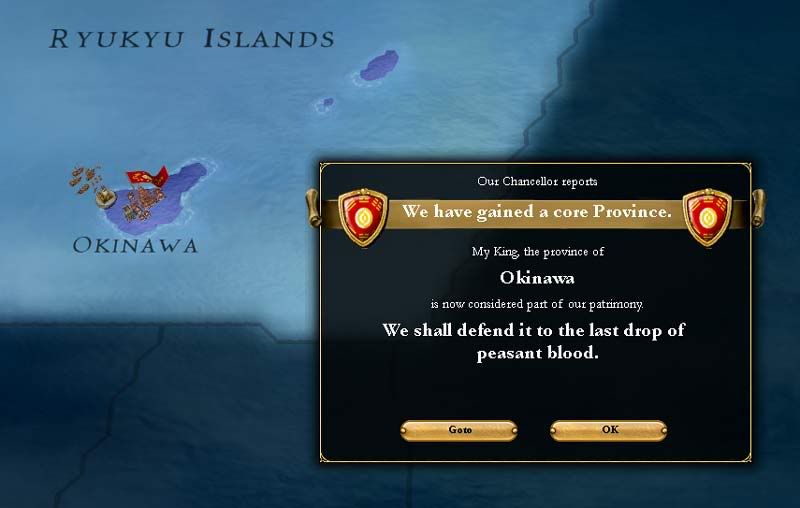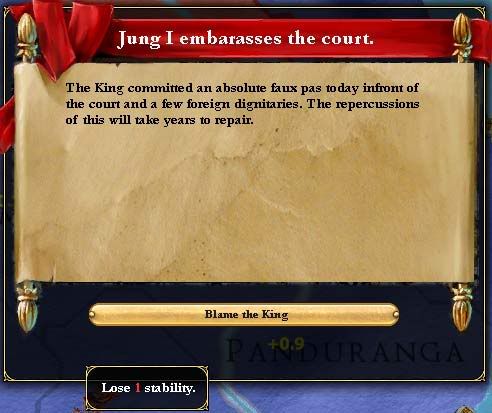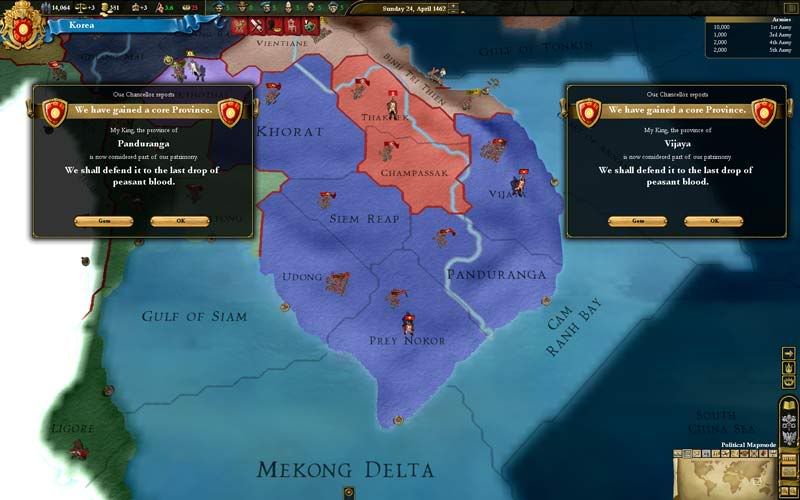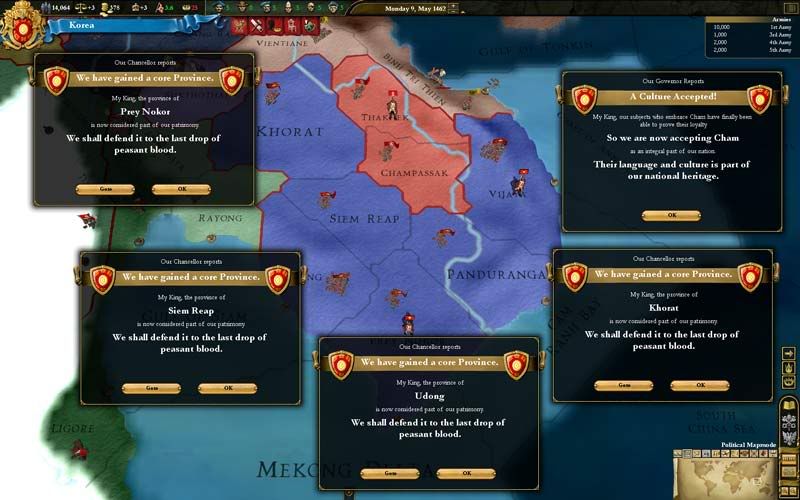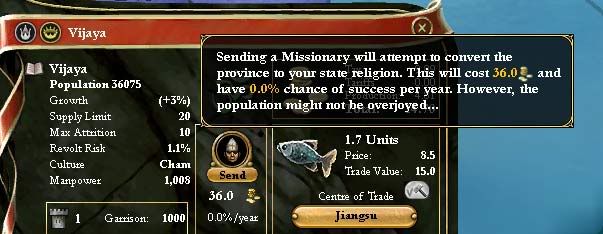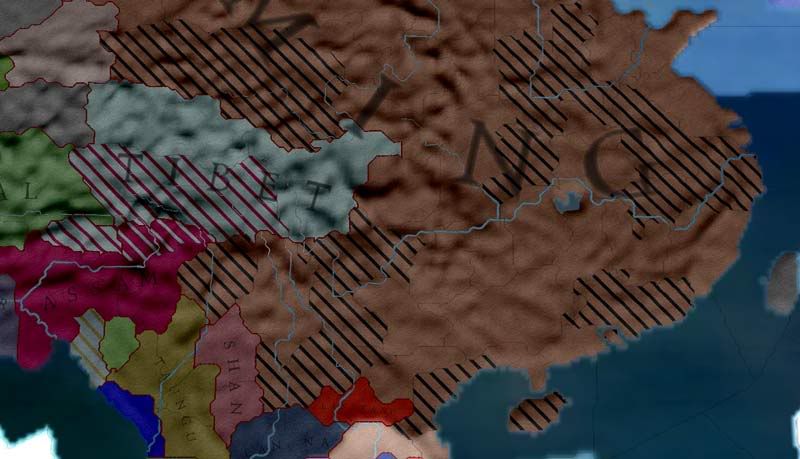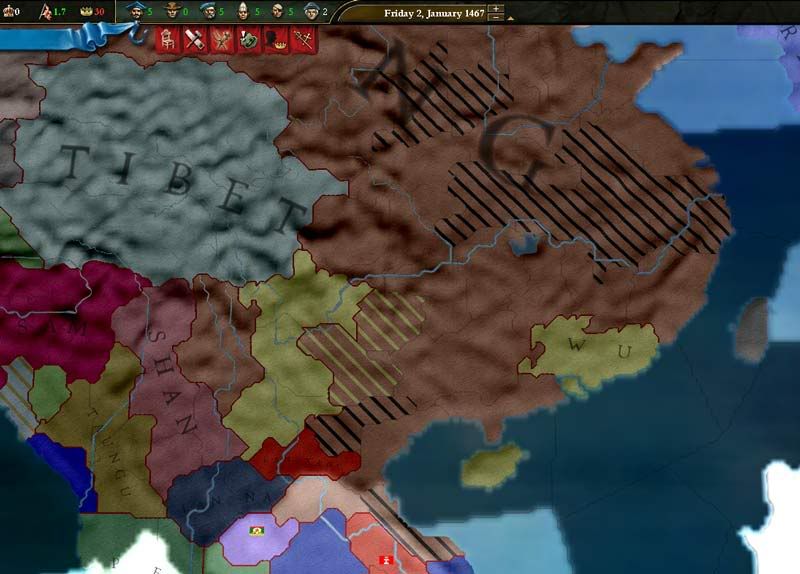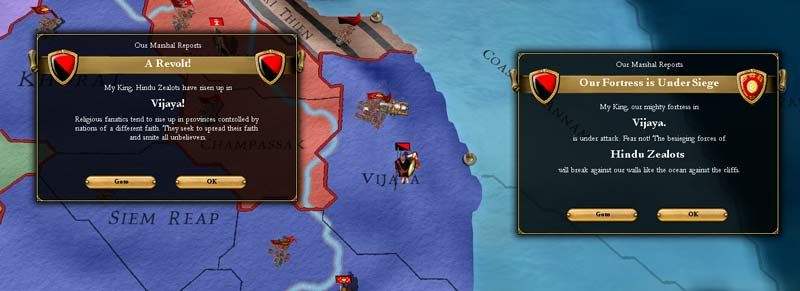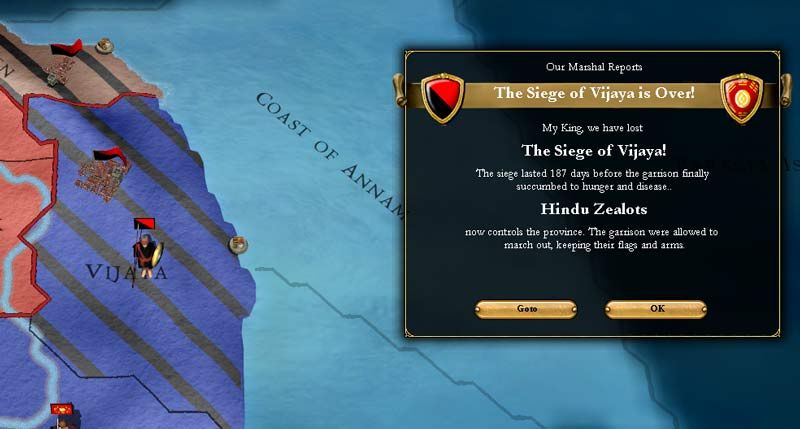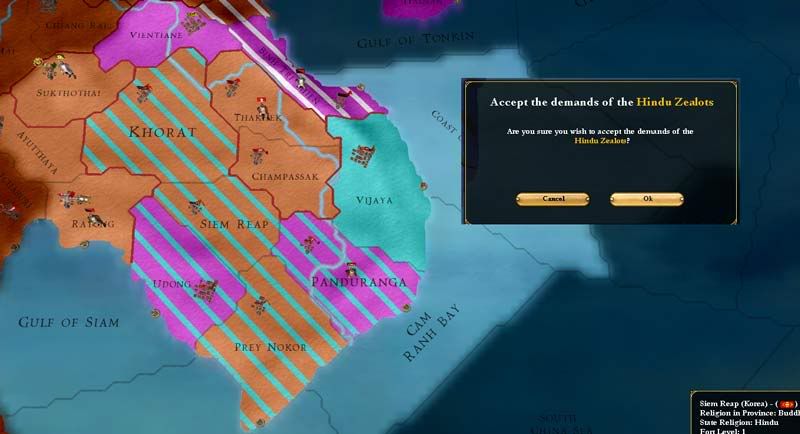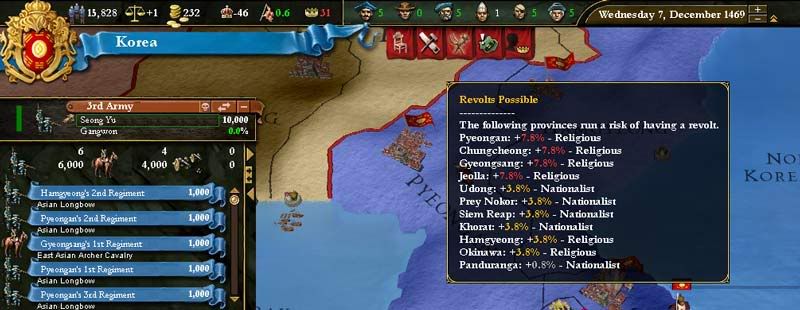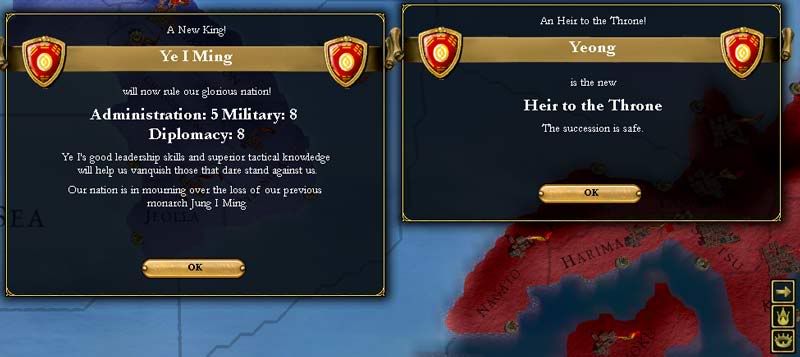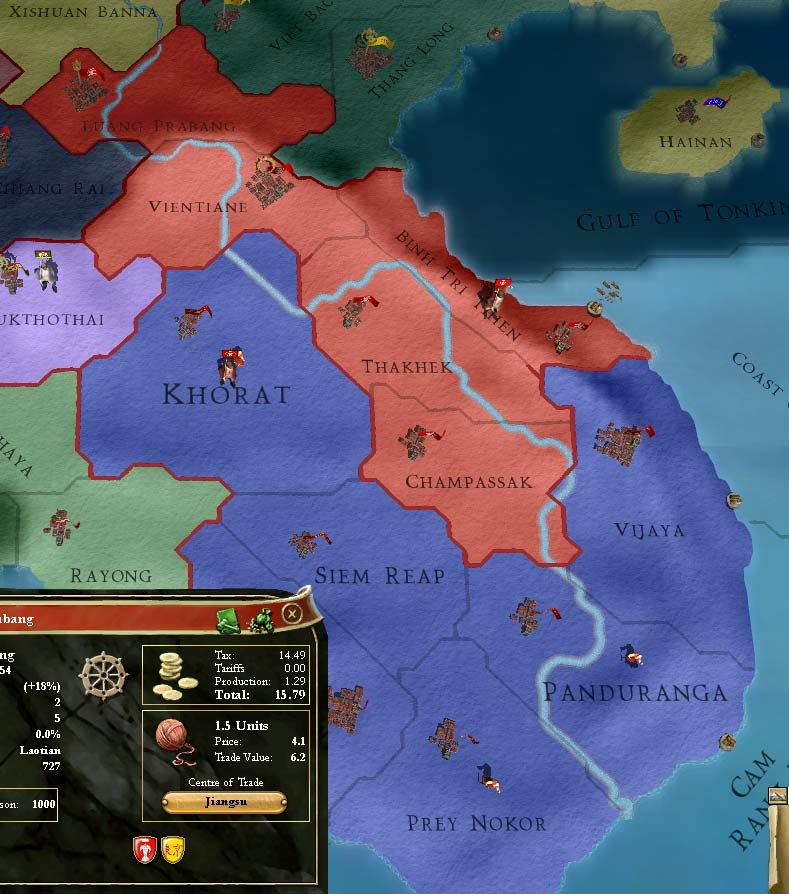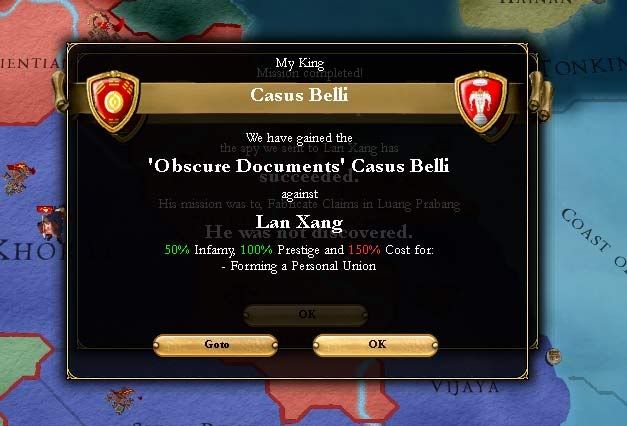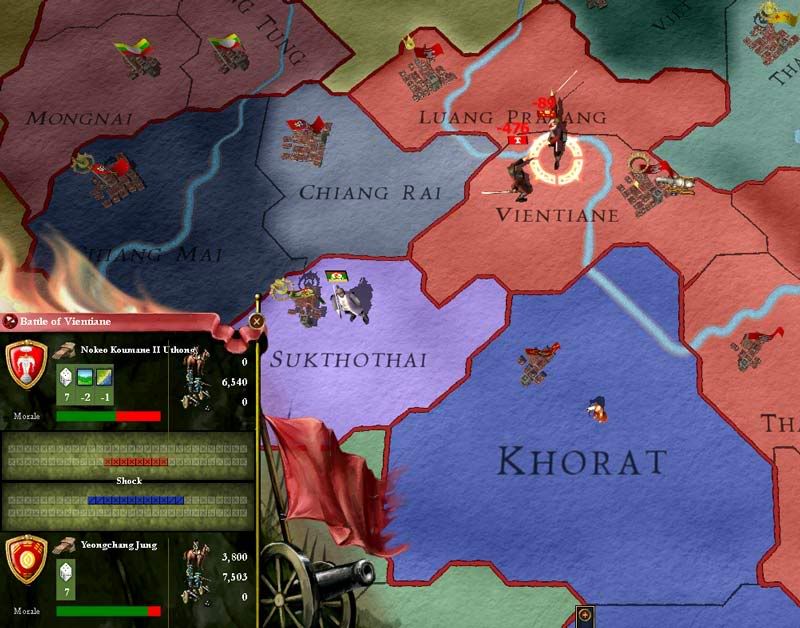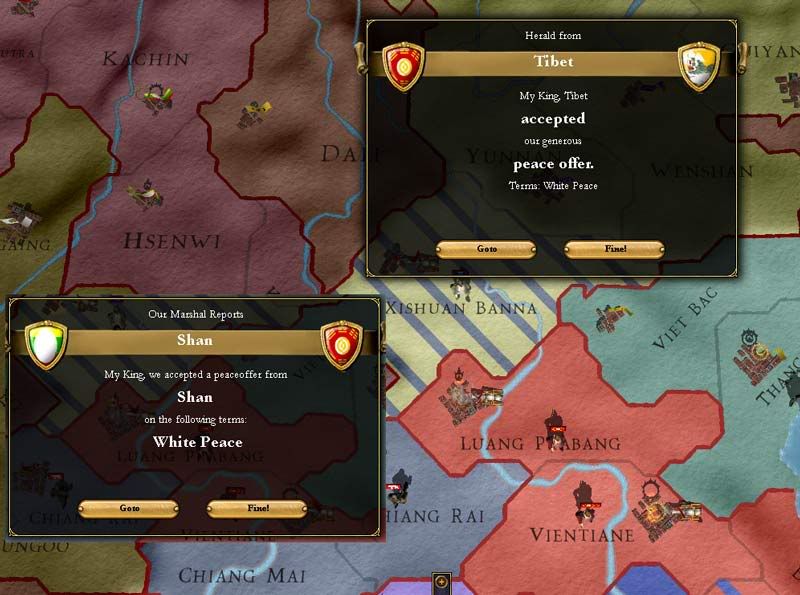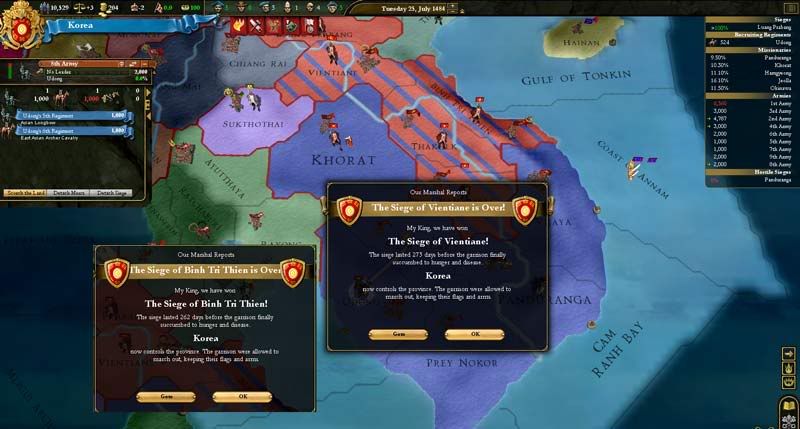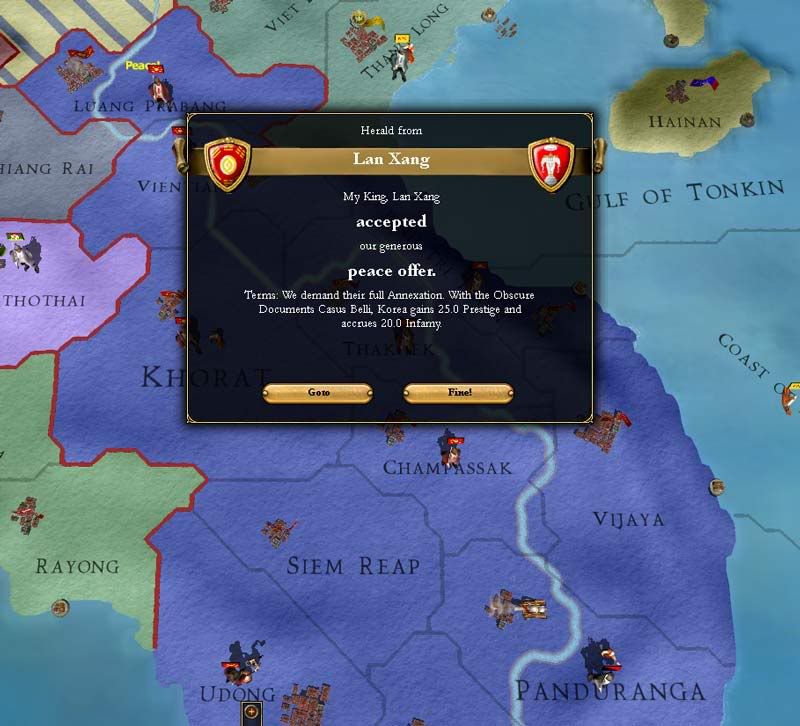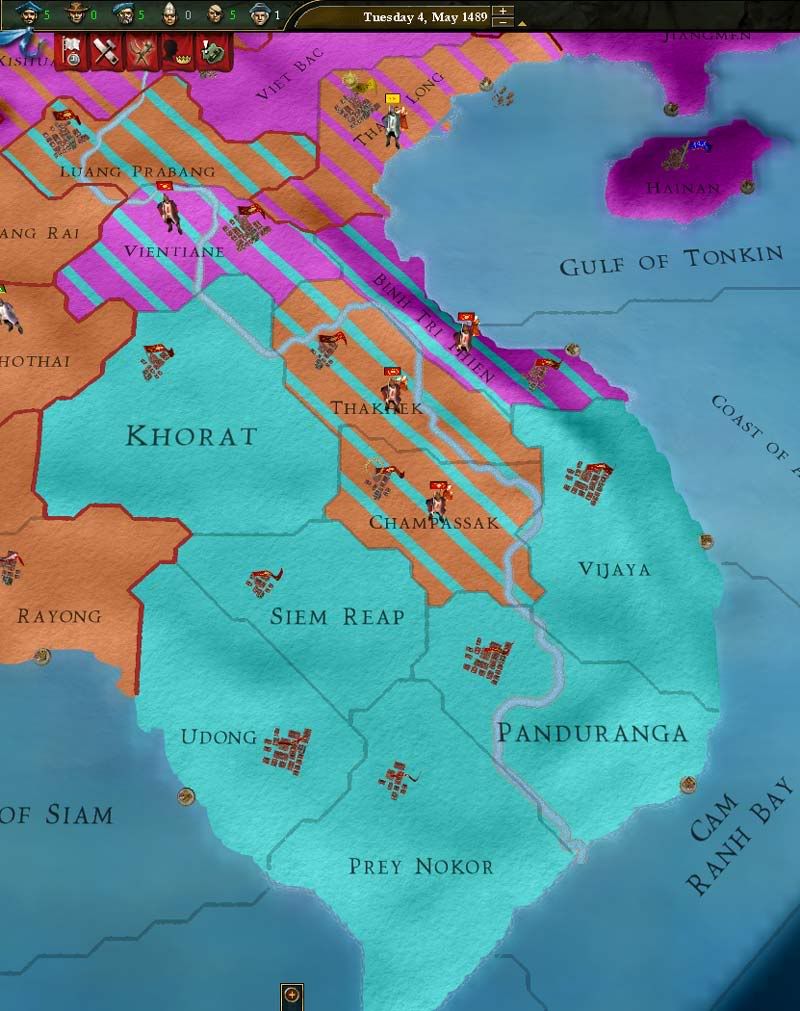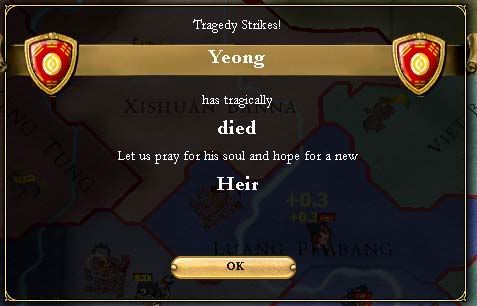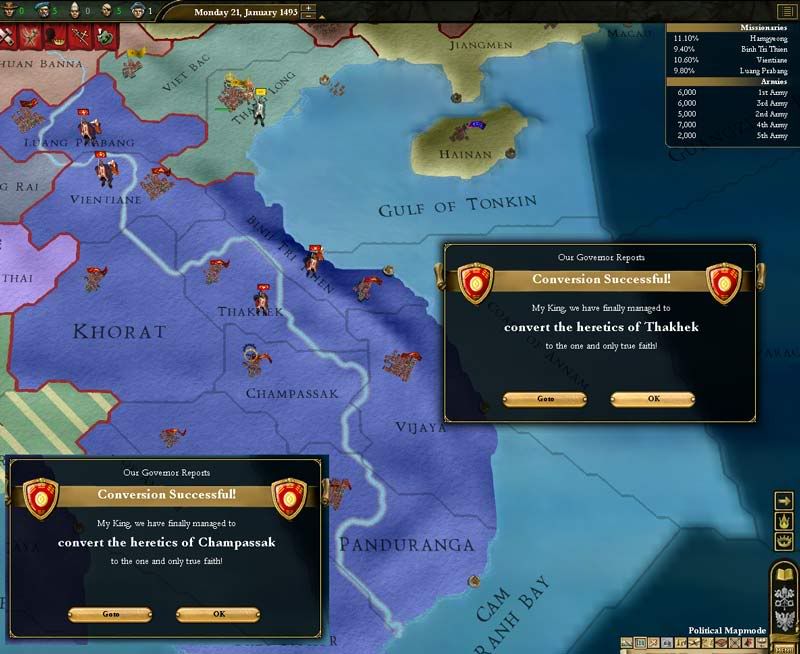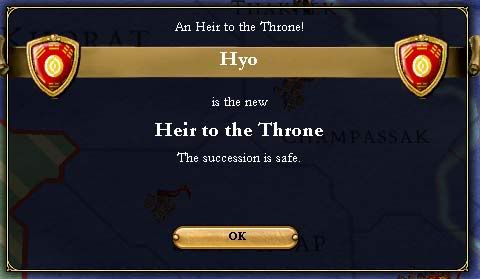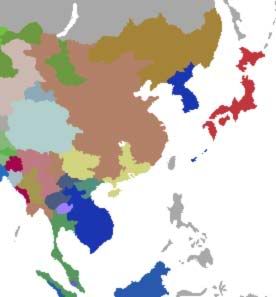Chapter Four - What's the word for religious realpolitik again?
King Jung I Ming glanced at the tapestry his artisans had just completed for the wall of the throne room. The fabric formed a map of Korea, with its home provinces and its new possessions outlined in a glorious blue. Jung felt a quiet sense of dissatisfaction creep into his mind; his new and larger kingdom was more powerful and richer than that of any previous Korean ruler, but he felt that it could be so much more.
With a snort of annoyance, he called for the treasurer to review the yearly income statements from the provinces. The dreariness of long tax rolls and reports from his provincial governors was soon interrupted by the news from the newly-integrated province of Vijaya. The reports from there showed that the local economy produced far more in the way of tax income than its neighbours. The treasurer meekly noted to the king that he believed the difference was due to the fact that the population in Vijaya was predominantly Hindu. While the king found it difficult to believe that the religion of the people could have much of an effect on the purse of their king, the treasurer noted that the Hindu believers were very diverse, but largely accepted the pursuit of wealth and happiness as a goal of every worshipper. This had a direct result in the amount of wealth that could be taxed by the state.
Jung quickly realized that he could use this tendency to his advantage. Growing up under his father's influence, Jung had shared King Jeongjong's general dislike for organized religion. Not only did it seem superfluous to him, but it often interfered with the king's direct authority. A move to Hinduism could very well increase the tax flows of Korea while removing some of the old layers of Confucian authority that had troubled the Korean throne in the past. However, Jung realized that a top-down forced state conversion could never work. Something a little more...subtle was needed.
On the king's orders, the troops stationed in Vijaya were redeployed to Panduranga on a training exercise in the foothills there. At the same time, Jung encouraged the leading Confucian communities to send a missionary contingent to Vijaya to "bring the unbelievers there to the true belief of Confucianism". Unfortunately, the state could not spare much funding for the mission as it was still paying out the settlements and pensions to the veterans and widows of the armies which had stormed through Southeast Asia.
While the mission to Vijaya was underway, news from the Ming dominion reached the court. The Korean ambassador to the Ming court had sent a critical report to his king, noting that many of the Ming provinces were in open revolt. As usual, any destabilization of Ming was good news for its rival, Korea.
The eventual results of the Ming troubles were beyond the hopes of King Jung - Tibet had seized several provinces, and the breakaway kingdom of Wu had shattered the unity of the southern provinces!
Jung longed to strike into the Ming territories at this time of weakness, but his maneuvers in Vijaya were taking too much of his time and effort. This became especially true when word reached the king that a revolt had broken out in Vijaya! The king, although he publicly stated his intention to crush the rebels, did not seem overly worried by the development.
Due to the unseasonable rainy weather, the army detachment on exercises in Panduranga became bogged down in the passes and could not reach Vijaya in time....
Jung I Ming quickly moved to force a diplomatic solution to the problem, before any more lives could be lost.
The news that Jung had converted to Hinduism (and by extension, his subjects) stunned the countryside. While many commoners accepted the change as part of their lot in life, many of them and the minor nobles would not accept the change. Missionaries flooded the home provinces, spreading the Hindu beliefs. Countless minor revolts and uprisings had to be crushed by the Korean army, while the treasury suffered under the burden of supporting the army, the missionaries, and the many projects undertaken to re-establish the stability of the realm.
As the years passed, the resistance to the establishment of Hinduism lessened, while the tax coffers swelled much as Jung had predicted. Unfortunately, King Jung I Ming would not live to see the entirety of his conversion efforts succeed. In 1480, after over 40 years of his rule, the crown passed to Ye I Ming.
Within a few years of his accession to the throne, Ye formally proclaimed that all territories and provinces of Korea had completed their conversion to their new true belief.
Gameplay comments:
Although it is maybe a bit gamey, I decided to convert Korea away from its godawful -50% tax religion  I tried to incorporate it into the story a bit to make it make a little more sense. At any rate, I was very busy swatting rebels for most of this play session! I would also say that focusing on the conversions and subsequent rebellions greatly slowed the pace of Korean expansion. I'm not sure whether it is worth it in the long run, but I hope it will be! I also was pretty mad that I wasn't in position to take advantage of the collapse of Ming - there could have been some nice gains to be had there I'm sure.
I tried to incorporate it into the story a bit to make it make a little more sense. At any rate, I was very busy swatting rebels for most of this play session! I would also say that focusing on the conversions and subsequent rebellions greatly slowed the pace of Korean expansion. I'm not sure whether it is worth it in the long run, but I hope it will be! I also was pretty mad that I wasn't in position to take advantage of the collapse of Ming - there could have been some nice gains to be had there I'm sure.


